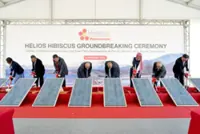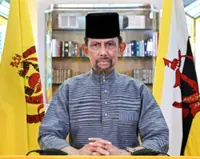BANDAR SERI BEGAWAN (Borneo Bulletin/Asia News Network): Green finance and financial technology (FinTech) can transform the country’s economy and society at large, to be more inclusive, resilient and sustainable, said Deputy Minister of Finance and Economy Khairuddin Abdul Hamid (pic) at the Brunei Economy Programme held at Anggerek Desa Technology Park on Thursday (Aug 11).
“The opportunities that FinTech could offer to advance green finance is tremendous,” said the deputy minister during a keynote address at the event.





